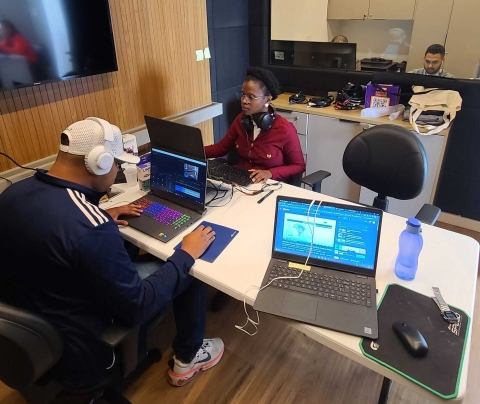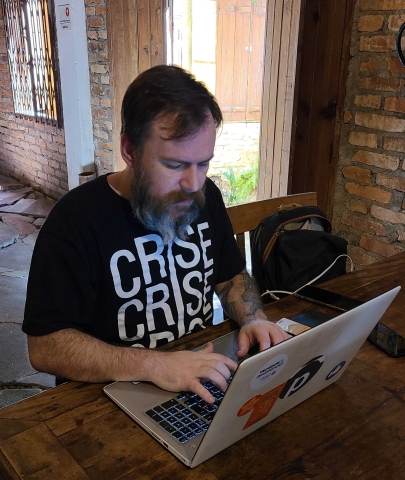
News outlets across Brazil – from radio stations in the Amazon to legacy newsrooms in São Paulo – are expanding their reach and ramping up their digital content through a large-scale ICFJ initiative supported by Meta that is now kicking off a second round. The program is designed to help Brazilian news organizations better meet the needs of their communities in the digital age, at a time of rampant disinformation.
In the first year, the Accelerating Digital Transformation initiative offered training on all things digital media for over 1,500 media professionals. Eighty news organizations and 80 individual journalists were then selected to receive $1.4 million in innovation grants, which they used to build recording studios, buy equipment, develop new websites and more. Expert mentors spent over 1,200 hours advising participants as they pursued their projects, from implementing a marketing plan for a new podcast to identifying new digital revenue streams.
Impacts include:
- O Estafeta, a small local news site in the south of Brazil, developed a new audience strategy that grew its monthly website visits from 21,000 to 142,000 in three months – an increase of nearly 700%.
- A data journalism outlet called Agência Tatu revamped its brand identity and trained its team to create a cohesive look for data visualizations, so audiences can easily identify them when republished. The news outlet saw a 107% increase in unique site users and a 112% increase in unique site views.
- Folha de Londrina created a regional true crime program called Banco dos Réus that skyrocketed to the number-one show on Apple podcasts in Brazil. In five months, the podcast amassed an audience of 50,000 unique listeners and 22,000 downloads.
The program was designed to reach media across the country, including in rural areas, which are often overlooked. It also involved a variety of news outlets, from small teams to major national broadcasters with thousands of employees.
“The journalists we worked with moved quickly to implement new, often challenging projects that took their newsrooms’ digital operations to the next level,” said ICFJ Program Manager Alison Grausam. “It was impressive – and revealing of the appetite and passion for this kind of opportunity among Brazilian journalists.”
For Alma Preta, the largest Black-run news organization in Brazil, the initiative provided an important and rare opportunity, said CEO Elaine Silva. Alma Preta, which means “Black Soul” in Portuguese, is dedicated to increasing representation of Black people in the media in Brazil, and reaches more than 520,000 people on Instagram – its largest platform – with stories on politics, police brutality and more.
“Ninety-nine percent of the people who work at Alma Preta are Black people,” Silva said. “For most of them, they do not have complete training, and I think that's one of our biggest roles and challenges. So the greatest value is knowledge, and knowledge is worth much more than money, because with knowledge we can transform and multiply our dreams.”

The six-person team at Ponte Jornalismo, a São-Paulo-based news outlet that exposes state violence, worked with a mentor to develop data journalism training for its staff. Editor Amauri Gonzo said his team had understood the potential of data journalism, but did not have the skills for it. Now they are discovering stories and reporting in a way they could not have before. As an example, Gonzo cited Ponte Jornalismo reporting that found nearly half of police reports in São Paulo fail to report the race of victims.
“We're really having a new way to look at the world,” Gonzo said, “and a new way to do our journalism after [this program].”
In addition to the individual gains for each newsroom, the Accelerating Digital Transformation initiative allowed for a powerful exchange of ideas between news organizations and journalists, said Thayane Guimarães, an ICFJ program consultant.
“My hope after this program is that the participants, of course, continue to grow with their products and projects, but also that they seize this opportunity to continue exchanging ideas and exchanging projects.” Guimarães said. “And maybe a product that was launched in the North can also be launched in the South, and we will have a growth in the entire media ecosystem in Brazil.”
Applications are now open for a new round of this program: Accelerating Digital Businesses. Learn more.